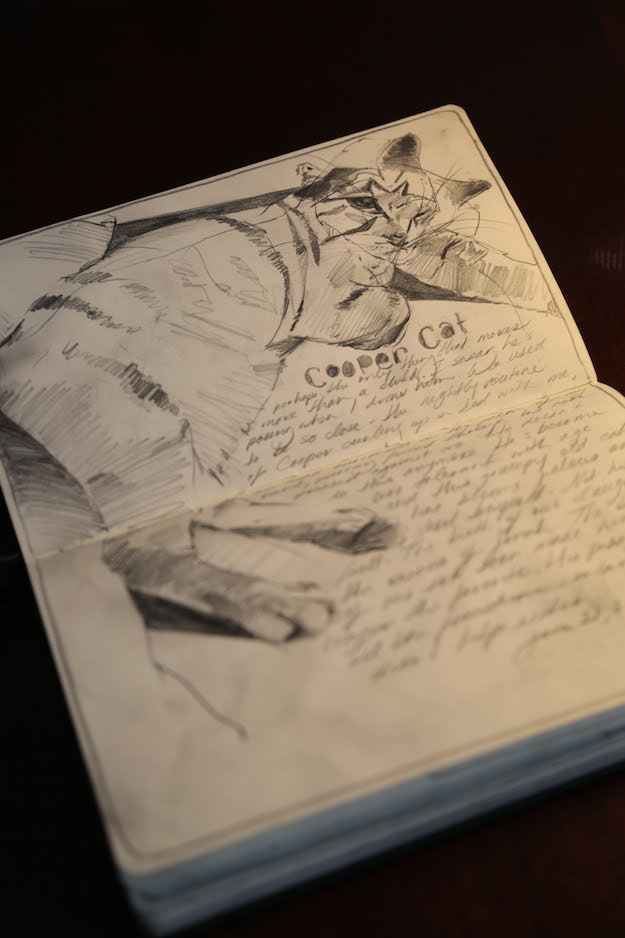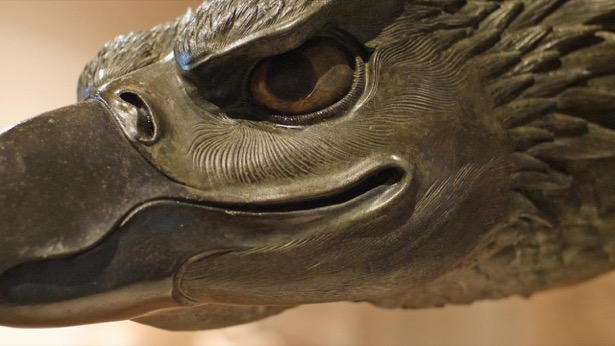A Cat, an Eagle, and the Great Entail

Sixty-some years ago a man gave a metal sculpture of an eagle to Boston College, because they’re the Eagles, right? So BC gilded it, put it on top of a pillar, and left it to the weather for half a century. Eventually it started showing signs of wear, at which point it was replaced by a copy and put into storage. Not too long ago some people at BC finally figured out what they actually had: a wonderful thing made by a sculptor and metalworker attached to the Japanese imperial court in the Meiji period. Here is a fascinating brief video of the process of the eagle’s restoration.

“God has lent us the earth for our life; it is a great entail.” In English law an “entailed” estate is one that is inherited with conditions, the most typical and important one being that the estate cannot be sold. The one who inherits it must care for it until his or her death, at which point it passes to the next heir. Ruskin shows us that we hold the lease to the earth itself on similar terms: we cannot sell it and pocket the cash, we cannot despoil it for our profit; we are legally and morally obliged to conserve it “for our life.” This means that our thoughts must always be bent toward the future: the earth “belongs as much to those who are to come after us, and whose names are already written in the book of creation, as to us; and we have no right, by anything that we do or neglect, to involve them in unnecessary penalties, or deprive them of benefits which it was in our power to bequeath.” We have no right, by anything we do or neglect, to disregard our heirs. And woe be unto us if we forget this.
— from my recent essay on John Ruskin in Comment. More and more I am convinced that Ruskin is the sage whose counsel we most need in our technocratic moment. Maybe one day I’ll write a book about this.
Last week I also wrote posts on Thomas Merton’s late theology, why you can’t be a good predictor of the future if you’re not a close reader of the past, and why journalists — all of them — should quit Twitter. And here’s my conversation with Ross Douthat about decadent societies.
My colleague Carlos Colón is a wonderful composer. On March 29 at Duke Divinity School Carlos will talk about, and there will be a performance of, his Requiem: Las Lamentaciones de Rufina Amaya. You should attend if you’re in the vicinity. Carlos is a native of El Salvador, and his Requiem has a special relevance to the struggles of that country, but in composing it he remembered the victims of war everywhere. You can watch and listen to a 2014 performance of the Requiem at Calvin College here.
STATUS BOARD
- Work: In one class, Jonathan Strange & Mr Norrell; in the other, the Tao te Ching.
- Music: Haydn’s string quartets. From the 40s on, infinitely imaginative and creative.
- Reading: I finished The Tenants of Time — I have so many thoughts that I hope to share, at some point.
- Podcasts: Nothing new — settling towards a podcast equilibrium, in which I subscribe to just as many as I can listen to between episodes.
- Food: When I had my cold I thought a lot about burgers. I am trying not to eat very many burgers, but I can’t stop thinking about them.
- Drink: Ibarra hot chocolate. Once you try it, you’ll never go back to that Swiss Miss crap.
